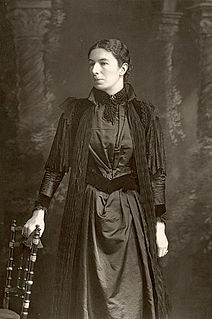A Quote by Virginia Woolf
Talents of the novelist: ... observation of character, analysis of emotion, people's feelings, personal relations.
Related Quotes
My work sanitizes it (emotion) but it is also symbolic of commercial art sanitizing human feelings. I think it can be read that way.... People mistake the character of line for the character of art. But it's really the position of line that's important, or the position of anything, any contrast, not the character of it.
The simplicity of the law by which the celestial bodies move, and the relations of their masses and distances, permit analysis to follow their motions up to a certain point; and in order to determine the state of the system of these great bodies in past or future centuries, it suffices for the mathematician that their position and their velocity be given by observation for any moment in time.
The revolution of Jesus is in the first place and continuously a revolution of the human heart or spirit...it is a revolution of character which proceeds by changing people from the inside through ongoing personal relationship to God in Christ and to one another. It is one that changes their ideas, beliefs, feelings, and habits of choice, as well as their bodily tendencies and social relations. It penetrates to the deepest layer of their soul. External, social arrangements may be used to this end, but they are not the end, nor are they a fundamental part of the means
My problem is, whether it's for emotion or for the talents that a character has to have in a role, I find it very difficult to not take on a challenge. For instance, 'Phantom Of The Opera,' in truth, scared the crap out of me, but I wasn't going to walk away and say, 'I didn't do that because I didn't believe in myself.'
Self-checkout is negative because more and more retailers are losing the personal touch. People want to do business where people know their name and communicate with them. With a world full of email and more self-service we will begin to start seeking out the basics from retailers who create emotion. There is not emotion out of self-service and most people buy out of emotion.
The theme of the diary is always the personal, but it does not mean only a personal story: it means a personal relationship to all things and people. The personal, if it is deep enough, becomes universal, mythical, symbolic; I never generalize, intellectualise. I see, I hear, I feel. These are my primitive elements of discovery. Music, dance, poetry and painting are the channels for emotion. It is through them that experience penetrates our bloodstream.
Lose/Win people bury a lot of feelings. And unexpressed feelings come forth later in uglier ways. Psychosomatic illnesses often are the reincarnation of cumulative resentment, deep disappointment and disillusionment repressed by the Lose/Win mentality. Disproportionate rage or anger, overreaction to minor provocation, and cynicism are other embodiments of suppressed emotion. People who are constantly repressing, not transcending feelings toward a higher meaning find that it affects the quality of their relationships with others.


































